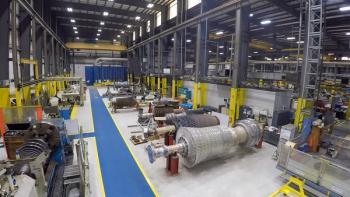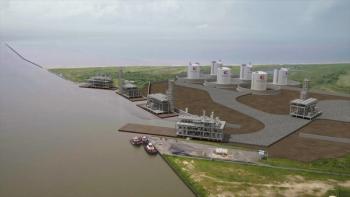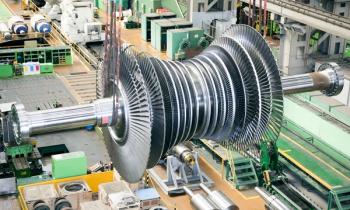
Natural gas only energy option for China as pollution reaches ‘break point’
Air pollution in China is a serious issue now – the nation burns roughly as much coal as the rest of the world combined. According to a study published recently in a leading U.S. scientific journal, pollution from coal has reduced the average life expectancy of northern China’s 500 million citizens by a full five years. The study, which appeared in the Proceedings of the National Academy of Sciences of the U.S., was based on data compiled between 1980 and 2000.
Since then, China’s galloping industrialization has led to a doubling of the country’s coal consumption, and a big jump in emissions of particulates and other pollutants. A separate study last year in The Lancet, an esteemed British medical journal, estimated that one million Chinese citizens die every year from air pollution. That’s larger than the population of the City of Edmonton, and the bodies are piling up at that rate every year.
The reason for China’s growing reliance on coal is simple enough. Although coal is the dirtiest of all fossil fuels, it’s also abundant and cheap, which explains why coal has powered China’s factories and propelled the country’s impressive economic growth for decades. But there are signs that China’s chronic air pollution may be approaching a “break point,” as ARC Financial Corp.’s chief energy economist Peter Tertzakian puts it. And that could pave the way for a major shift away from coal and toward cleaner-burning natural gas or LNG (liquefied natural gas).
Although China invested $65 billion in wind, solar and other forms of renewable energy in 2012 — more than any other country — renewables still account for just a tiny fraction of China’s overall energy needs, said Tertzakian. The same is true for nuclear energy, leaving coal as the overwhelmingly dominant fuel source.
World's largest energy consumer
China has also become the world’s largest energy consumer and biggest emitter of greenhouse gases by a wide margin. Carbon emissions from Alberta’s oil sands, by comparison, amount to little more than a fly speck — a fact the noisy green lobby steadfastly ignores while they continue to hammer away at the proposed Keystone XL pipeline.
If China is going to continue to grow its economy, there is only one viable alternative. China has to wean itself off coal, and replace it with natural gas or LNG. “The biggest change to China’s energy use over the next two decades will be a significant ramp-up in the use of natural gas,” Tertzakian predicted, in a commentary. “Electricity is the first thing that a developing country seeks. Damming up rivers for hydro power is where it starts ... Next is a shift to coal, because it’s cheap and can be scaled up quickly. Citizens start to buy cars as the powered-up society gets wealthier, so oil begins to creep into the energy diet at an accelerated pace.”
Although China will likely ramp up its use of nukes in the years ahead, the country’s citizens are increasingly fearful of nuclear power in the wake of Japan’s Fukushima disaster. In fact, authorities in the southern Chinese province of Guangdong were recently forced to cancel plans to build a $6 billion uranium processing facility after thousands of protesters rallied against it. According to Tertzakian, although nukes and renewables will continue to grow their share of the mix, natural gas is the only scalable, clean-burning energy system that can diversify the supply side over the next two decades. Once a nation’s economy reaches maturity, natural gas typically accounts for roughly 15 - 20 percent of its total energy mix. And if that occurs in China, the ramifications for global energy suppliers like Canada will be huge.
“By 2025 the country will probably be consuming one-and-a-half times as much primary energy as today ... which means that natural gas consumption could reach 55 to 60 billion cubic feet per day, close to what the U.S. consumes today… When you look at China’s consumption profile there are two things you can bet on without going to Vegas: that coal growth is unsustainable and natural gas is the only scalable alternative. It’s a good bet for future suppliers of LNG like Canada,” concludes Tertzakian.
Newsletter
Power your knowledge with the latest in turbine technology, engineering advances, and energy solutions—subscribe to Turbomachinery International today.




